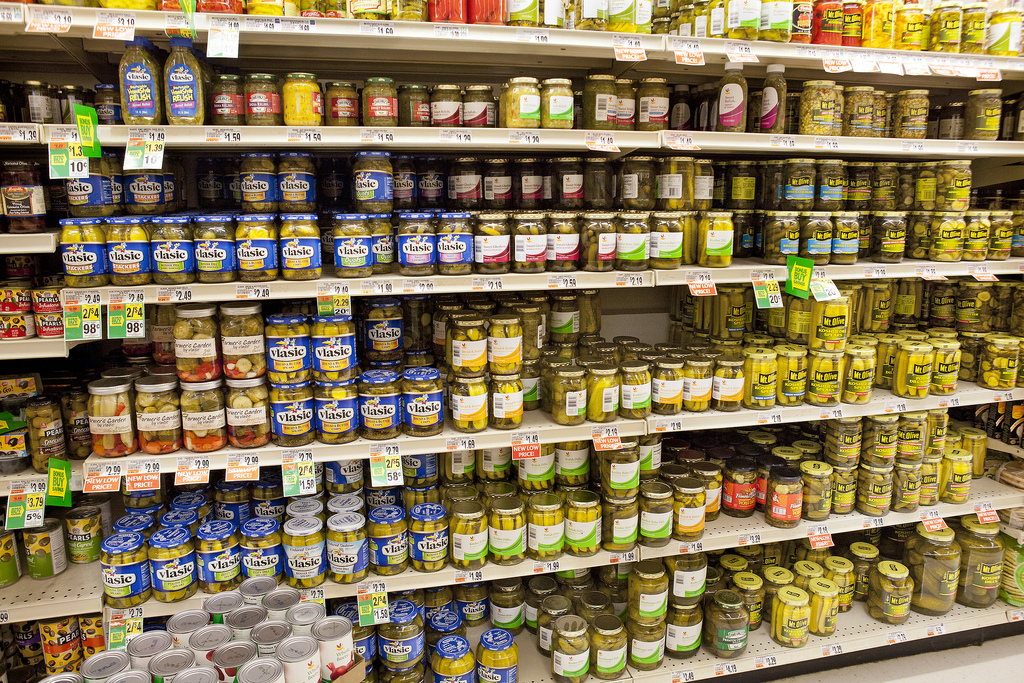The WB estimated the annual loss of productivity due to diseases and premature deaths associated with poor nutrition in countries with medium and low incomes at $ 95.2 billion (in 2016 prices). When calculating, the bank analysts who prepared the report and methodological recommendations on ensuring the safety of the food system relied on the number of years of life adjusted for disability (DALY), as well as on gross national income per capita. According to the World Health Organization, in 2010 poor-quality food caused 600 million cases of diseases, 420 thousand of which were fatal, which is equivalent to 33 million DALY - and which is comparable to tuberculosis rates (40 million DALY).
53% of all cases of diseases and 75% of deaths (72% of DALY on a global scale) due to poor-quality food were recorded in countries of South and South-East Asia and in sub-Saharan Africa (41% of the world's population lives there). Of the total losses, the share of countries with medium income accounts for $ 50.8 billion, or 53%, medium-low - 40.6 billion (43%), low - $ 3.8 billion (4%). In the regional context, $ 63.1 billion amounted to losses of Asian countries ($ 30 billion - China, $ 15 billion - India), the poorest countries in Africa accounted for $ 16.7 billion,. Another $ 15 billion for all countries amounted to the cost of treatment.
In addition to direct damage to the national economy and human development, the problem of food safety also affects the system of international food trade. For low- and middle-income exporting countries, ensuring that agricultural products meet the more stringent requirements of developed markets can mean additional costs for the state and the private sector. In 2016, the volume of agricultural exports in these countries amounted to $ 475 billion, and losses due to non-admission of products or too expensive compliance procedures amounted to $ 5–7 billion (5–6.6% of the amount of domestic economic losses from poor-quality food).
At the same time, many negative consequences can be avoided with the help of fairly inexpensive implementation of practices and infrastructural changes covering various parts of the value chains, including traditional food production and distribution channels, the WB noted. However, the topic of food security, as a rule, remains in the shadow and appears on the national agenda only in times of crises associated with mass poisoning and epidemics, identified cases of falsification of products or food embargoes, followed by a series of tough regulatory measures, the document stresses. Moreover, the main investments in the improvement of food quality are still related to export priorities, and not to the needs of the domestic market, which change with the development of economies, demographic shifts and dietary standards of the population.
source: worldbank.org
53% of all cases of diseases and 75% of deaths (72% of DALY on a global scale) due to poor-quality food were recorded in countries of South and South-East Asia and in sub-Saharan Africa (41% of the world's population lives there). Of the total losses, the share of countries with medium income accounts for $ 50.8 billion, or 53%, medium-low - 40.6 billion (43%), low - $ 3.8 billion (4%). In the regional context, $ 63.1 billion amounted to losses of Asian countries ($ 30 billion - China, $ 15 billion - India), the poorest countries in Africa accounted for $ 16.7 billion,. Another $ 15 billion for all countries amounted to the cost of treatment.
In addition to direct damage to the national economy and human development, the problem of food safety also affects the system of international food trade. For low- and middle-income exporting countries, ensuring that agricultural products meet the more stringent requirements of developed markets can mean additional costs for the state and the private sector. In 2016, the volume of agricultural exports in these countries amounted to $ 475 billion, and losses due to non-admission of products or too expensive compliance procedures amounted to $ 5–7 billion (5–6.6% of the amount of domestic economic losses from poor-quality food).
At the same time, many negative consequences can be avoided with the help of fairly inexpensive implementation of practices and infrastructural changes covering various parts of the value chains, including traditional food production and distribution channels, the WB noted. However, the topic of food security, as a rule, remains in the shadow and appears on the national agenda only in times of crises associated with mass poisoning and epidemics, identified cases of falsification of products or food embargoes, followed by a series of tough regulatory measures, the document stresses. Moreover, the main investments in the improvement of food quality are still related to export priorities, and not to the needs of the domestic market, which change with the development of economies, demographic shifts and dietary standards of the population.
source: worldbank.org





